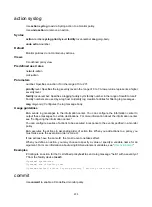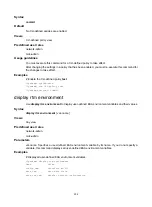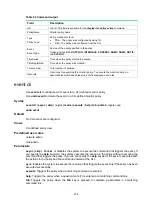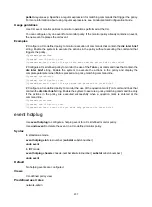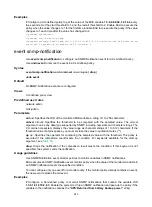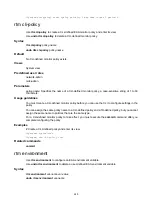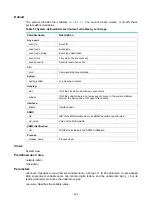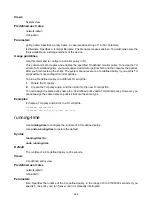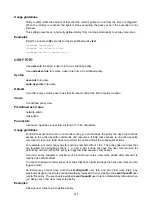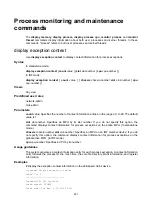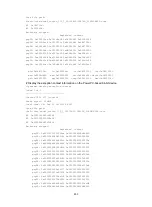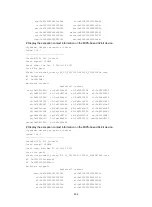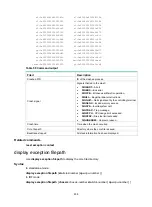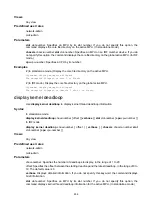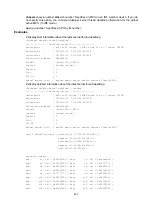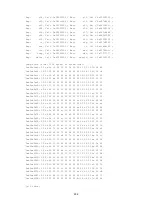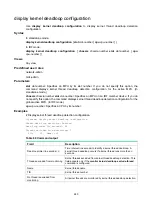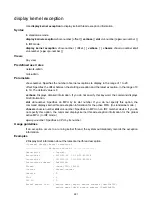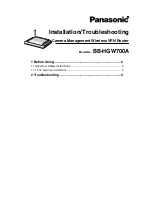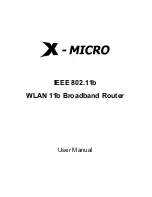
247
Usage guidelines
When you define an action, you can enter a variable name with a leading dollar sign
(
$
variable_name
) instead of entering a value for an argument. EAA will replace the variable name
with the variable value when it performs the action.
For an action argument, you can specify a list of variable names in the form of
$
variable_name1
$
variable_name2
...
$
variable_nameN
.
Examples
# Create an environment variable: set its name to
if
and set its value to
interface
.
<Sysname> system-view
[Sysname] rtm environment if interface
rtm scheduler suspend
Use
rtm scheduler suspend
to suspend monitor policies.
Use
undo rtm scheduler suspend
to resume monitor policies.
Syntax
rtm scheduler suspend
undo rtm scheduler suspend
Views
System view
Predefined user roles
network-admin
mdc-admin
Usage guidelines
This command disables all CLI-defined and Tcl-defined monitor policies except for the monitor
policies that are running.
To revise the Tcl script of a policy, you must suspend all monitor policies first, and then resume the
policies after you finish revising the script. The system cannot execute a Tcl-defined policy if you edit
its Tcl script without suspending all monitor policies.
Examples
# Suspend monitor policies.
<Sysname> system-view
[Sysname] rtm scheduler suspend
rtm tcl-policy
Use
rtm tcl-policy
to create a Tcl-defined policy and bind it to a Tcl script file.
Use
undo rtm tcl-policy
to delete a Tcl policy.
Syntax
rtm tcl-policy
policy-name tcl-filename
undo rtm tcl-policy
policy-name
Default
No Tcl policies exist.

